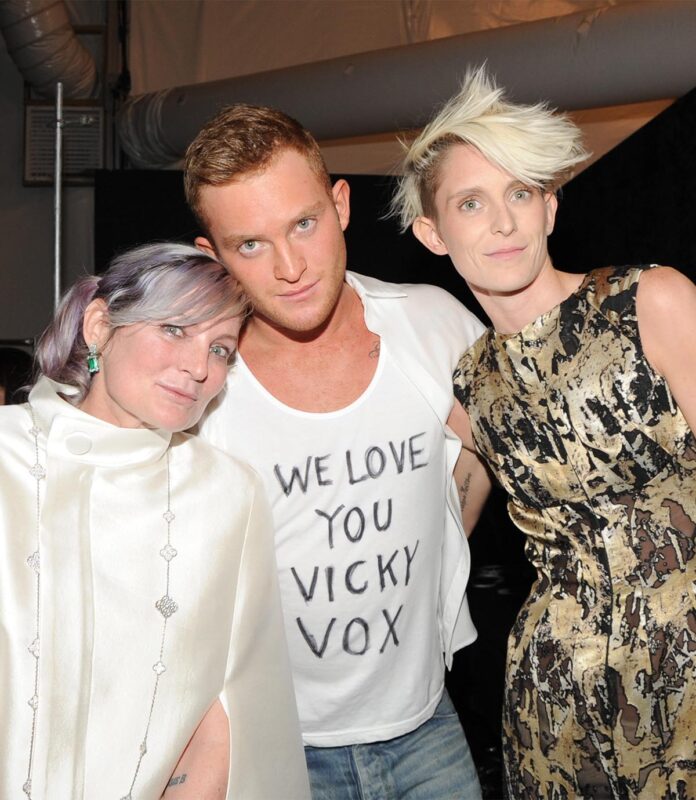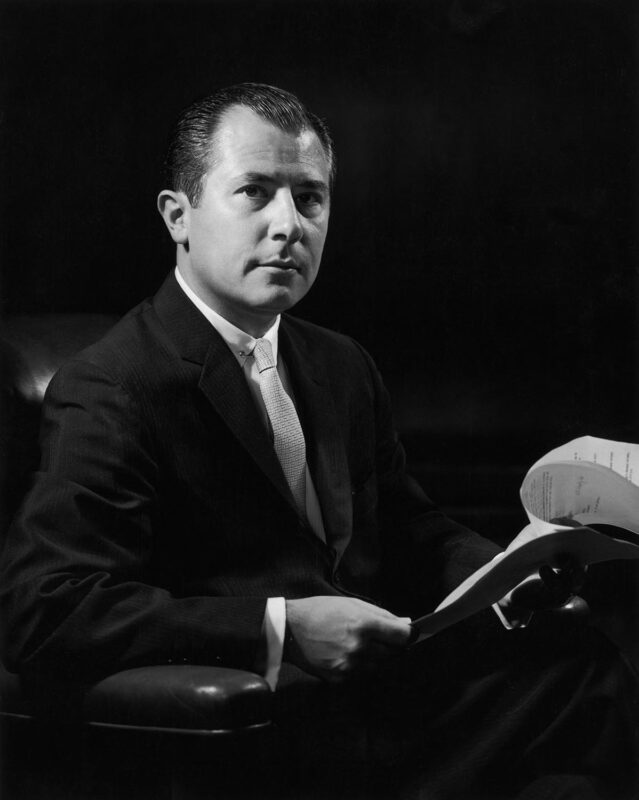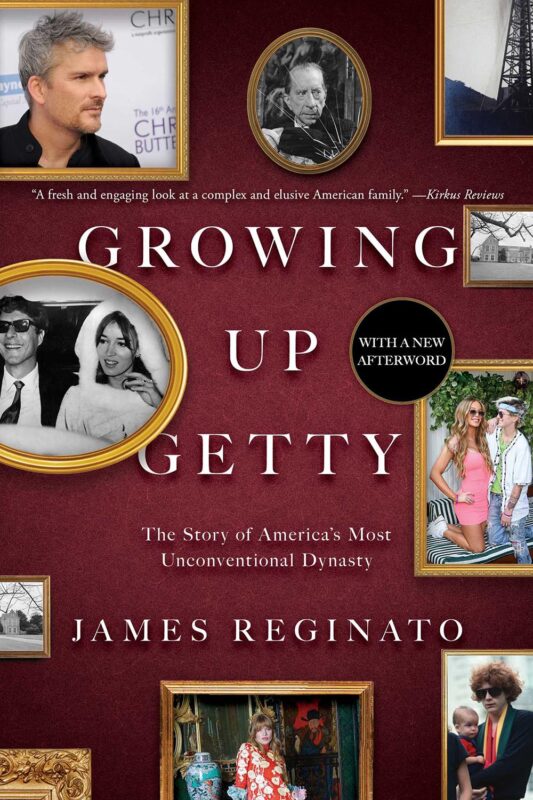
Outrageous Fortune
How to Stay RIch: the Gettys
Rethinking the lives and legacy of America's most unconventional dynasty.
When we think of the Gettys, we generally think of people who made the characters of Succession look like one big, happy family. Perhaps you remember the story: when J. Paul Getty’s 16-year-old grandson was kidnapped by Italian gangsters in 1973, Getty refused to pay the ransom even after they cut off the boy’s ear (he claimed this was to discourage criminals from kidnapping other members of his family).
Eventually he negotiated the demands down from $17 million to $3 million. Finally, under threat of further mutilations, Getty begrudgingly paid just $2.2 million (apparently the amount he was told was tax deductible), and loaned his son (the boy’s father) the remaining $800,000 at four percent interest.
John Paul Getty III was released but never recovered, and spent the rest of his life suffering from severe PTSD and substance abuse, before dying of a drug-induced stroke at the age of 54.
The kidnapping wasn’t even the only calamity to befall the family in 1973. His eldest son, George, who was known to call his father Mr. Getty and to suffer greatly from the pressures of trying to measure up, became a heavy drinker and developed other mental health and substance abuse issues that led to self-harm (he tried to stab himself with a barbecue fork) and eventually a fatal overdose just a few weeks before the kidnapping.

The widely accepted public version of his life paints Getty as a cold, stingy patriarch, damaged by his own youth, who didn’t much care about his progeny. On the other hand, over the years there has been some revisionist thinking: sources close to the family argue that what the public saw of Paul Getty was a calculated pretense of indifference, meant to protect his family from being further targeted. In any case, by the time he died in 1976, he was known almost as much for his miserly behavior and various family tragedies (many involving substance abuse and early death), as for being one of the richest men in the world.



Is the Past Prologue?
And now it’s all back in the public eye: last summer, a lawsuit filed in Brooklyn alleged that several members of the family had engaged in tax evasion to the tune of hundreds of millions of dollars, by fraudulently claiming domicile in Nevada rather than California. Predictably, some of the more scintillating stories from the past were rehashed, including the existence of Gordon Getty’s secret second family (three daughters by a mistress he acknowledged in 1999). Estate planning attorney Marvin Blum reflected on the situation in a post about the tax-avoidance strategies of the ultra rich:
“Dysfunction in the Getty family abounds. Old Paul had five divorces and five sons, whose weddings he didn’t even attend. After his death, the family feud was played out in public view in the courthouse, leading to a forced sale of Getty Oil to Texaco. One of Gordon’s daughters [from the extra-marital affair], a beneficiary of the Pleiades Trust, laments that her abrupt transformation into an heir gave her little preparation for managing a fortune. ‘In exchange for the love I didn’t receive in my life, I got money,’ she said. ‘So, at first, I always felt misery and guilt, and I didn’t know what to do with it.’”
If these various anecdotes were all you knew of the Getty family, you might be excused for concluding that the enormous family fortune did nothing but perpetuate a legacy combining jealous money-hoarding and selective frugality with unprecedented philanthropic generosity; The J. Paul Getty Trust, established at his death and now worth well over $10 billion, describes itself as the world’s largest cultural and philanthropic organization dedicated to the visual arts.
But that’s fortunately not where the story ends. James Reginato’s engrossing book Growing Up Getty, now available in paperback, sheds new light on one of the most famous, long-lasting, and far-flung dynasties in United States history. With painstaking detail Reginato highlights, among others, a few names you may or may not recognize.


The New Generation
Anne Getty Earhart, daughter of George (Paul’s first born, the one who overdosed in 1973), has quietly won countless awards including the Carnegie Medal of Philanthropy, for her work in environmental conservation.
Mark Getty, Anne’s cousin (son of J. Paul junior), founded Getty Images. (In April 2023, Activist investor Trillium Capital made an unsolicited bid to acquire the company for $4 billion. Getty turned down the offer, questioning its credibility.)
Mark’s sister Aileen survived (possibly post-partum) depression and an HIV diagnosis that led to a battle with cocaine addiction, to become a staunch AIDS activist with her mother-in-law (from her first marriage) Elizabeth Taylor, and later a tireless advocate for the homeless and environmental causes.
Then there’s Ariadne Getty Williams, Mark and Aileen’s younger sister, who has become a powerful supporter of LGBTQ rights in California: in 2019, her eldest child, Nats (who was born Natalia but later transitioned), married a beautiful transgender woman known as Gigi Gorgeous in a quirky, glamorous wedding in Malibu, cheered on by Hollywood elite and many of Nats’s relatives. Nats founded a successful fashion line, mischievously named Strike Oil.


Reginato wrote about the Nats/Gigi wedding for Town & Country, and what he described was a happy, tight-knit, well-adjusted family full of creatives, entrepreneurs, activists and passionate philanthropists:
“If there was a Getty curse, as some have suggested over the years, it seems as if it has been dispelled. Maybe that’s due to vast improvements in parenting styles since the days of the patriarch, who was never what you’d call a hands-on dad to his five sons. [Ariadne] didn’t tell her children they were Gettys until they were about 10. They were brought up as August and Nats Williams, with the surname of their father, Justin Williams, an actor whom Ari divorced 15 years ago. “I wanted them to grow up without the weight of the name,” she says. On school field trips to the J. Paul Getty Museum, the kids were unaware that they had any connection to it.”
Gagging on the Silver Spoon
There are so many well-known stories of vast fortunes made and lost within two or three generations. Yet the Getty dynasty has not only preserved its wealth, but has also seemingly thrived, for the most part, as a family. How did this dynasty turn things around, how have they managed to show resilience through adversity, and what are the lessons for the rest of us?
Perhaps Gordon, interviewed for the book, provides a clue:
“You can gag on that silver spoon. Having too much money is dangerous, especially for children. More than you need is a curse . . . [but] if you have ideals, and that ideal is something bigger than you . . . then you might escape the curse. There are . . . Gettys who have dodged it, others have been clobbered.”
This quote, Reginato told me when I spoke to him, offers a key insight into the family history. Most of the children and their descendents have been expected to work and make something of themselves, whether through employment, entrepreneurship, or philanthropy. And for the most part this sense of purpose has helped them overcome many of the typical challenges of inherited wealth.



In fact, family members who were less productive seem to have been more likely to succumb to the family’s addiction gene. Experts suggest that the work ethic can and should start young: doing chores is a predictor of success in young adulthood, and working for pay is a good way to learn the value of money.
Family Ties
As Reginato suggests, perhaps parenting has something to do with it as well. There is a level of involved parenting and open lines of communication that seems to lend itself to well-adjusted adulthood. The family meets twice a year, meetings that are attended by most of the Gettys no matter where in the world they are based, which keeps the lines of communication open and helps prepare the younger generations for what’s coming. There has generally been a preference for privacy rather than ostentatious displays of wealth, and many of the Gettys have been able to live and raise their children quietly, avoiding unwanted attention and potential security risks.
The governance of the estate plan has contributed to a relatively low level of contentiousness, especially once Getty Oil was sold and the proceeds distributed. The trust structure laid out a clear decision-making protocol, with separate trusts for the most part intended to treat each branch of the family equitably and transparently. Of course, the current case of tax evasion may be an unforced error, one in keeping with the family legacy of recklessness. But it is a far less onerous form of self destruction. The combination of having their own independent identities, transparency around what’s coming, allegiance to education and service, and reasonably strong, loving ties can turn a once-chaotic family’s fortunes around—the emotional, physical and psychological fortunes that shape us perhaps even more than wealth.
Hero image, from left: Ariadne Getty with her children August and Nats at the August Getty fashion show in 2014. Photo by Owen Kolasinski/BFA images



